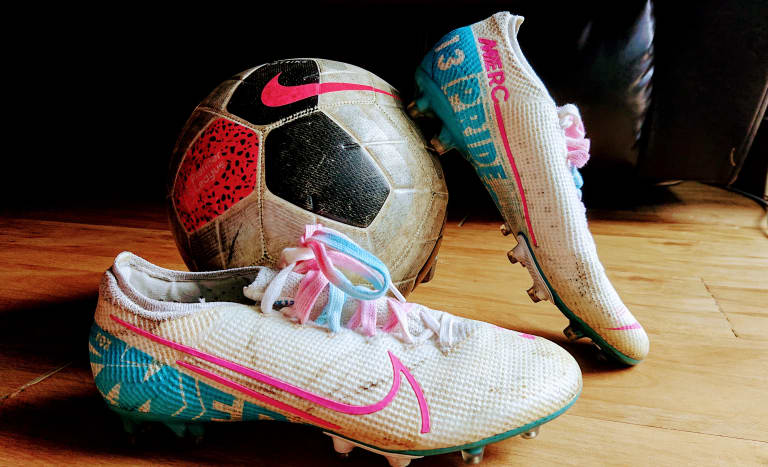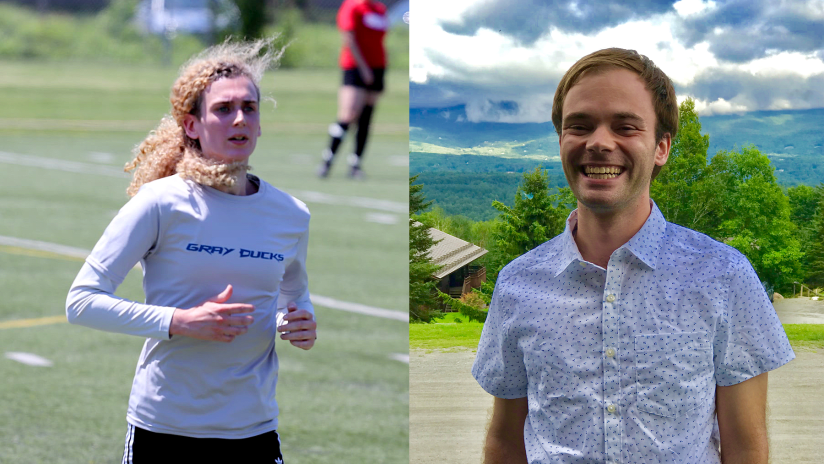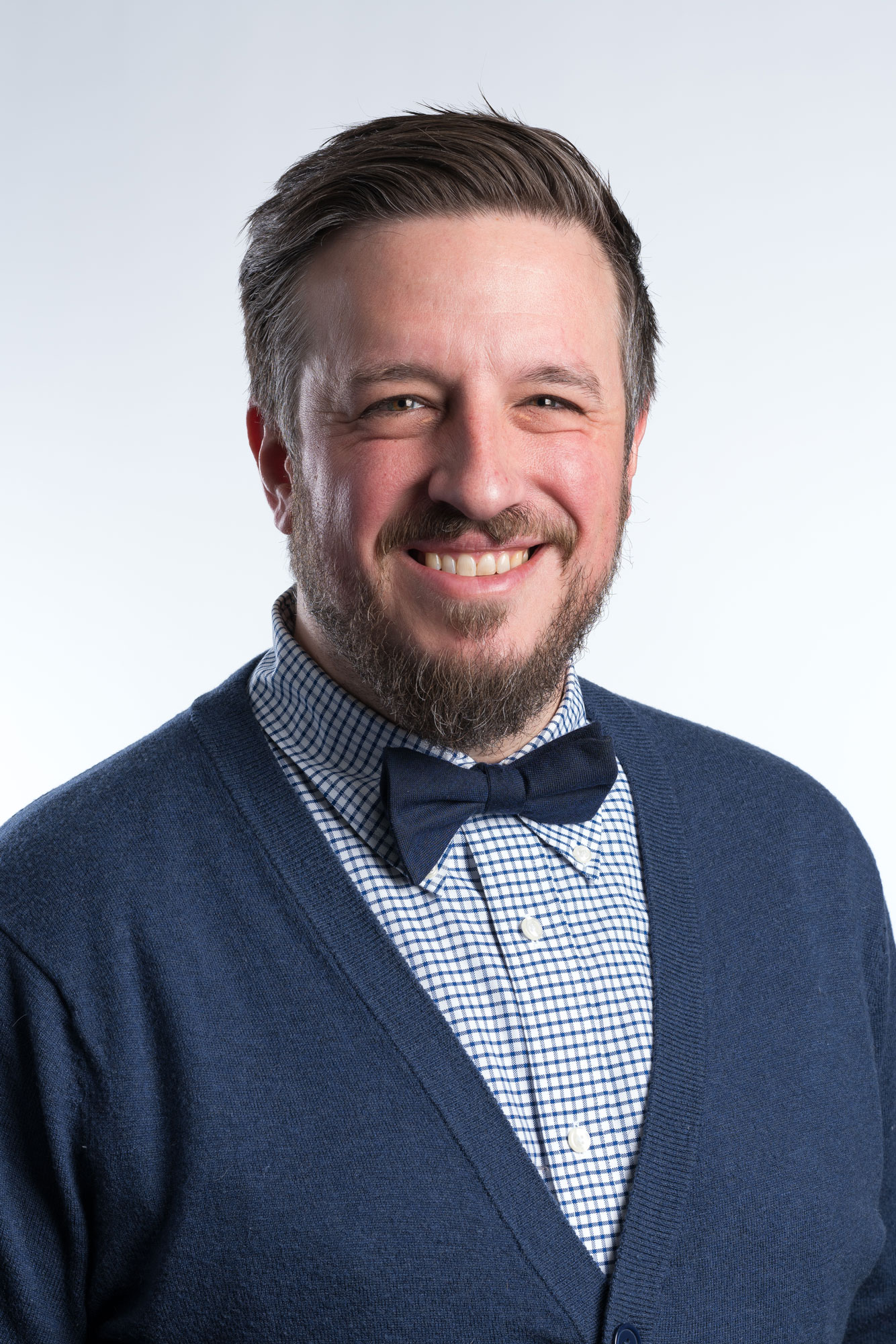It can sometimes feel like there’s an inescapable contradiction at the heart of sports and so many other things that bring people together. On the one hand, a team turns into a tight-knit group through the crucible of competition; a fan base holds its breath and cheers and commiserates together; a community grows together because of what they share.
But every group that can be defined by what it is can just as easily be defined by what it’s not, and that leads to exclusion, to fear, to isolation. Team sports in particular often balance of a knife edge between inclusion and exclusion, and when it comes to young people trying to navigate their own relationship to sexuality and their identity, that knife edge can get perilously sharp.
“I really loved soccer and I was good enough at it to fit in enough,” says John Gallagher, a Seattle native who now teaches sixth grade in Saint Paul and identifies as queer. “But sometimes I ran into some kids that were not the nicest. And that was the primary space that I felt not fully included or accepted. I think soccer was one of the spaces that felt a little bit daunting.”
For Gallagher and hundreds of other soccer players throughout the Twin Cities, they found that open, supportive space with the Gray Ducks, a soccer organization for LGBTQ+ players and their allies founded by Ryan Adams in 2017.
“There’s not a lot of openly trans players playing soccer right now at the recreational level, let alone the professional level,” says Adrienne Fox, who moved to Minnesota after growing up and going to school on the East Coast. “So, even in my first game, I got mis-gendered and Ryan [Adams] had to come storming out of the goal to correct everybody. I knew that people would stand up for me and it was easier to be my authentic self in that moment, and that really gave me a sense of purpose and a sense of belonging.”
Both Fox and Gallagher connected with the Gray Ducks — who have grown to 24 teams across multiple leagues with more than 500 community athletes participating — and found the kind of connection that can be difficult to create when moving to a new place.
“It was really hard when I first got here,” says Fox. “I didn’t have any friends. I didn’t have any family. I didn’t really work here. So I was starting from scratch all over again. It took maybe a year to acclimate myself to the area and feel a little bit more comfortable. Joining soccer and getting involved with that was really a community that I needed to feel like myself again.”
Picking up soccer again followed a 14-year hiatus for Fox between the start of high school and the end of grad school, a time during which she kept active by running drills, staying in shape and finding the things about the game that could bring her joy. Gallagher also moved away from the organized element of the sport when he was younger. At soccer tryouts in high school, he saw his friends on the track team smiling as they ran around the track. He saw it as a positive space and he strives now to bring that same positivity to his work as a track and field coach at Ramsey Middle School and a cross country coach at Saint Paul’s Central High School.
“I think a lot of my athletes expect me to come out here and just yell at them all the time,” he says. “And that was, quite frankly, a lot of my experience, and it really has driven what I do and how I coach differently. There’s lots of kids that just need a supportive space. And if that means that I ask them, ‘What do you feel we need to do for your hurdling today?’ [or] ‘What do you feel you can do as a runner?’ and going from there, I found that we have a healthier relationship with our sport and healthier relationship with ourselves.”
As adults, we often talk about sports as this great coming together, this great unifier, but it doesn’t take very much digging to go back to that time when you were a teen or pre-teen and every game could look like an opportunity for failure, for disappointing people. Add on the pressures of coming to grips with a complicated internal emotional landscape, and you can understand how a genuine love of sports is something that often has to not just be embraced, but even rediscovered or reclaimed.

“I think that both sports and queerness can be sources of anxiety for a lot of people,” says Gallagher. “And so, it didn’t always feel like I’d go into a game super excited. I’d be, like, kind of terrified for multiple reasons. And usually the worst that would happen is we’d lose the game and that’s it, but a lot of times it was me catastrophizing things because of the combo of the two.”
For him, growing up and playing on teams other than the Gray Ducks, there was always that question in the back of his mind. “You always wonder, when push comes to shove, what’s gonna happen?” he says. “If something happened on the field, if someone says something, who’s got my back right now? Because in that situation, you don’t want to be the only one to have to say something because it puts you in kind of a weird zone.”
Fox — who usually plays outside mid or fullback — has stepped into a leadership role on the field, organizing the defense and being vocal about where people need to get to. Getting to that point was a process, though.
“Part of that was just me growing as a person and becoming more confident and comfortable,” she says. “I still have a lot of dysphoria around my voice so it’s really uncomfortable to yell out across the field and talk to other players. But having that sense of safety within the group knowing that people will stand up for me even if something were to happen, I can let myself be loud or be heard.”
When it comes down to it, team sports are neither inherently inclusive nor exclusively exclusionary. As Shakespeare said, “There is nothing either good or bad, but thinking makes it so.” We can choose to build the kind of spaces that Ryan Adams has created with the Gray Ducks, the kind of community that has helped Adrienne Fox and John Gallagher reclaim that simple joy of competition, camaraderie and connection. We can choose to speak up and make sure that everyone has that chance to be loud, to be heard.


